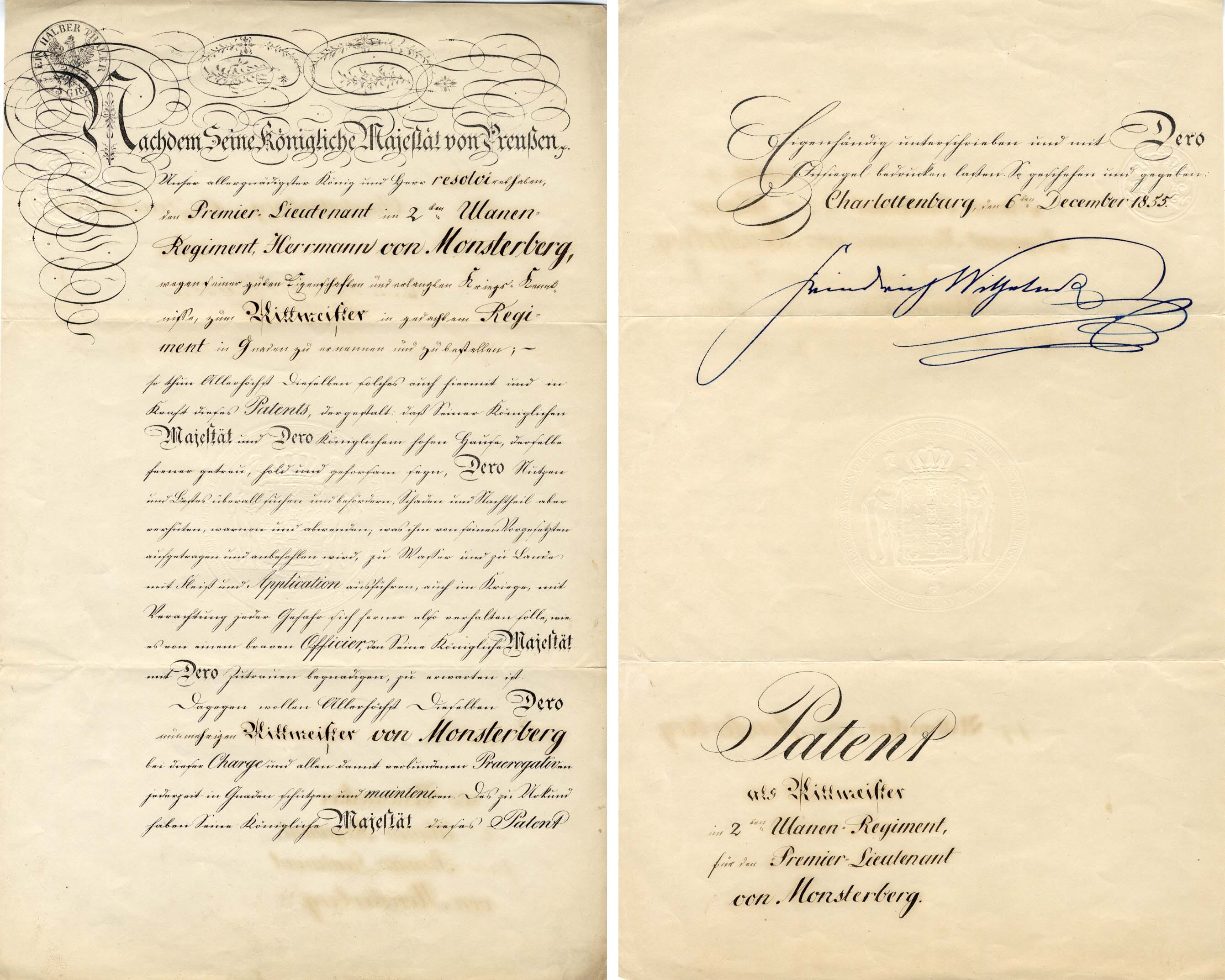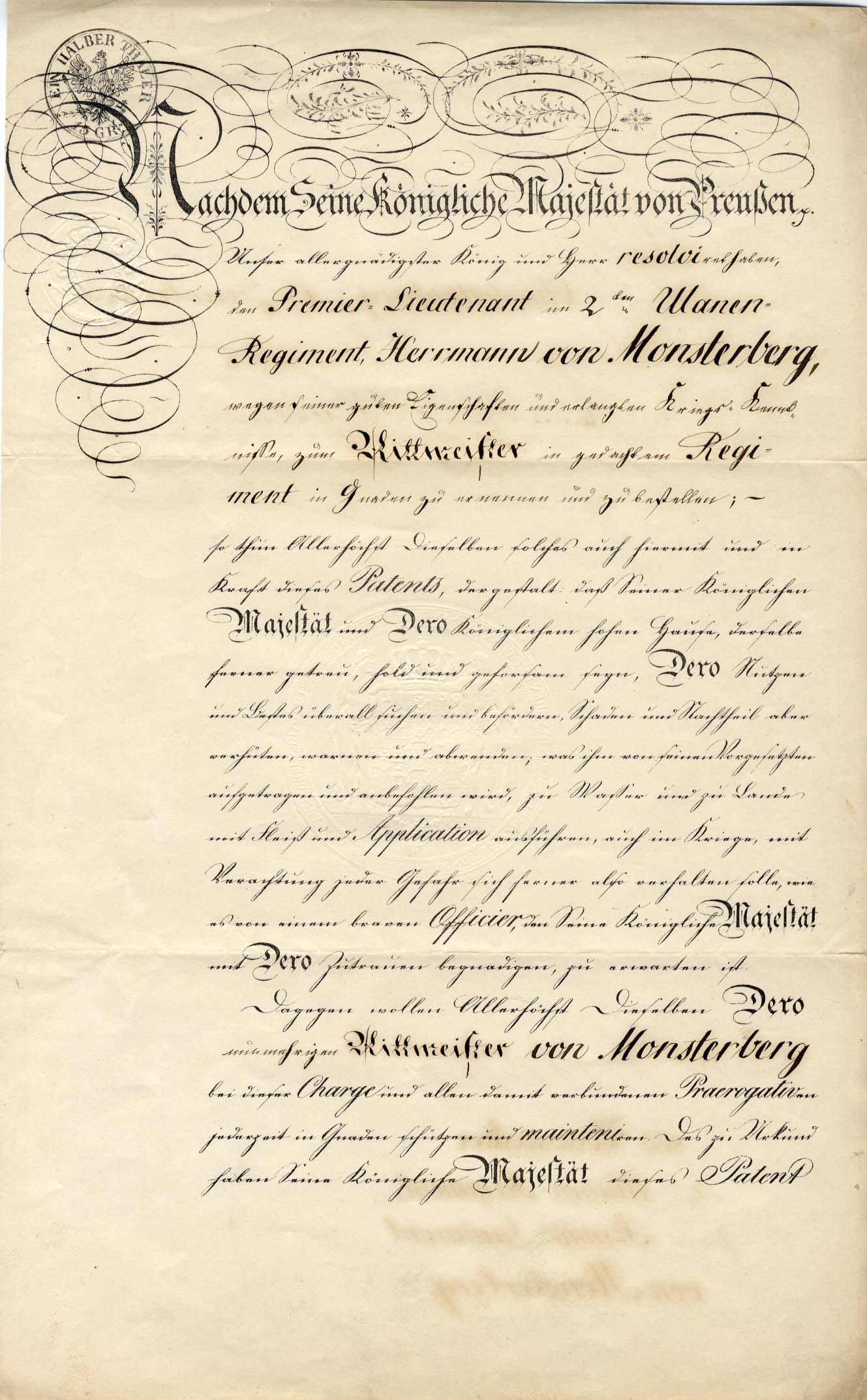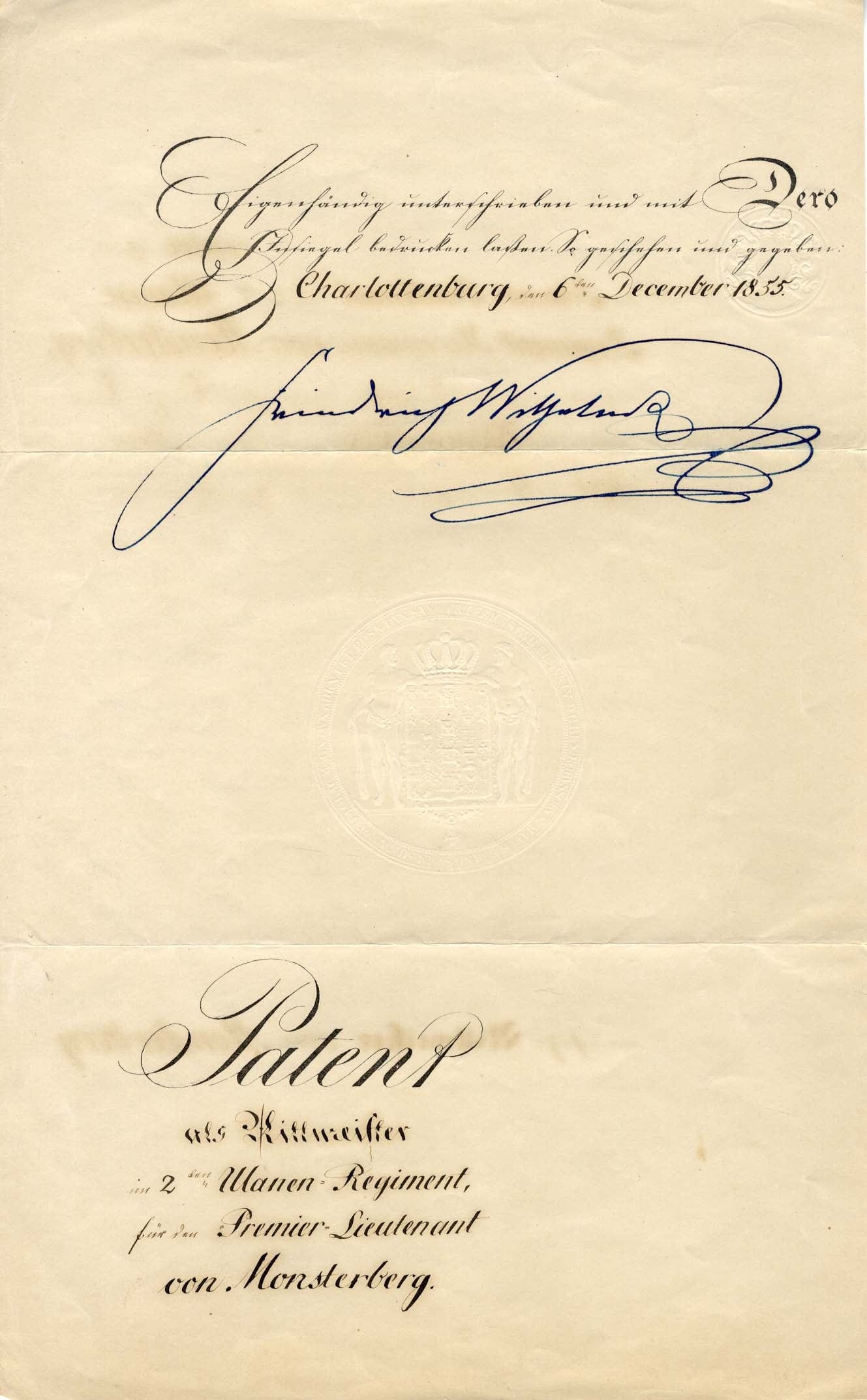Beschreibung
Weitere Infos zur Person
Profession:
(1795 - 1861) König von Preußen von 1840 bis 1861
Year of Birth: 1795
Echtheitszertifikat
Zahlung & Sicherheit
Deine Zahlungsinformationen werden sicher verarbeitet. Wir speichern keine Kreditkartendaten und haben auch keinen Zugang zu deinen Kreditkartendaten.



